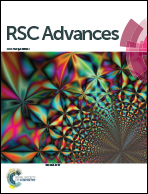Supramolecular analyte recognition: experiment and theory interplay
Abstract
Due to the large impact of analyte recognition on biological and environmental studies, the development of supramolecular recognition and sensing strategies has attracted considerable interest in recent years. Although researchers employ a variety of spectroscopic (optical and or fluorescence) and/or the analytical techniques based on changes in mass, electrochemical behaviour and other changes to assess the perturbation of physico-chemical changes associated with a supramolecular sensing event, theoretical calculations have proven to be a pivotal tool to substantiate experimental results. Such calculations assume additional significance as the information gained in such calculations can help designing new, even more efficient chemosensors and the time and resources consumed in the synthesis of sensors and associated trials, errors and operational difficulties are considerably reduced. This review presents some supramolecular sensing events wherein the sensing mechanism is supported by theoretical predictions of the binding modes based on the perturbations in the energies of the frontier molecular orbitals upon recognition of the guest species.


 Please wait while we load your content...
Please wait while we load your content...